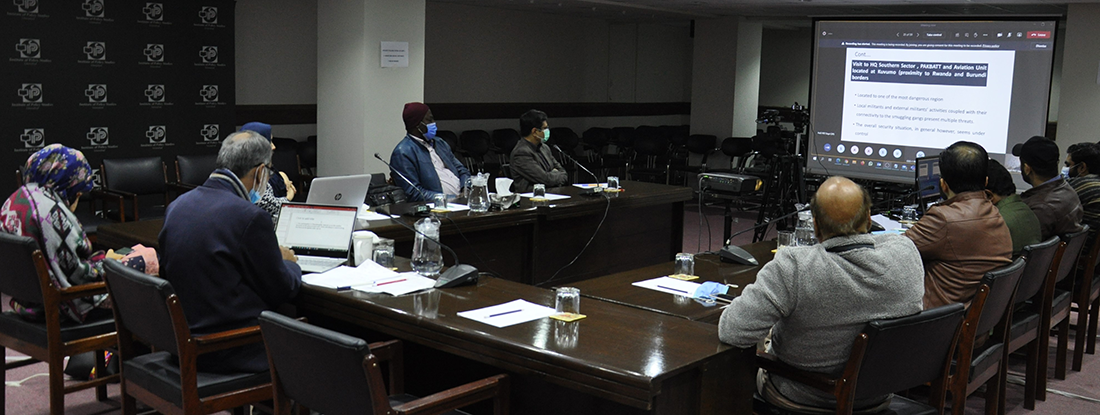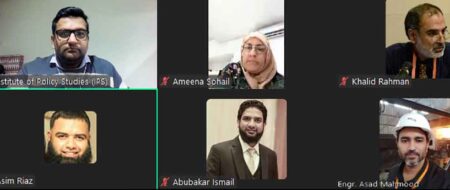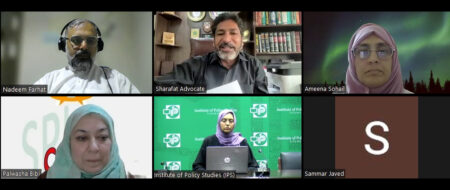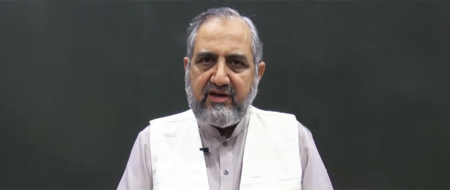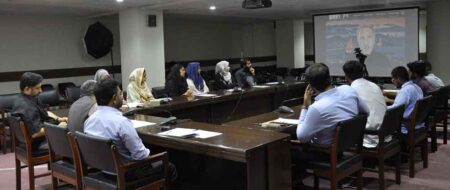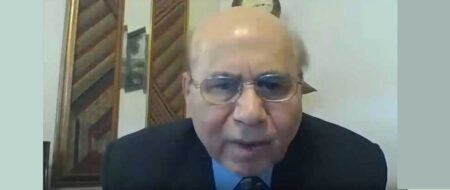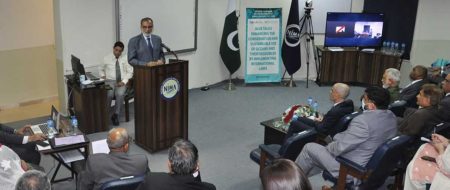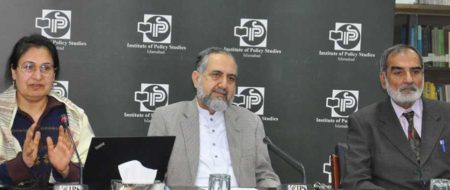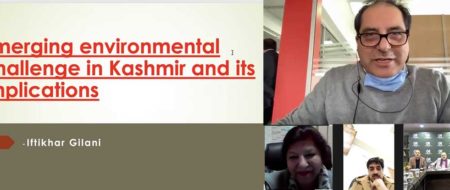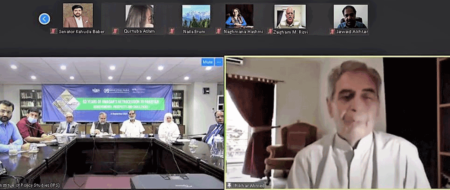‘Understanding Africa: Pakistan’s role in UN peacekeeping missions in Africa’
Webinar discusses Pakistan’s role in UN peacekeeping efforts in Africa
Pakistan’s noteworthy contributions for UN peacekeeping missions across the world, especially Africa, provide an opportune area to strengthen its diplomatic and trade relations with the countries provided with the support.
The thoughts were shared in a webinar titled ‘Pakistan’s role in UN peacekeeping missions in Africa’, which was jointly organized on December 24, 2020 by the Institute of Policy Studies (IPS), Islamabad, Centre for International Peace and Stability Studies-National University of Science and Technology (CIPS-NUST), and Centre for Asian African Studies (CAAS), Bradford-UK, as part of the Institute’s ‘Understanding Africa’ project.
The session was chaired by Executive President IPS Khalid Rahman, moderated by Dr Tughral Yamin, associate dean, CIPS-NUST and non-resident fellow at IPS, and addressed by Brig (r) Mirza Salim Baig, Brig (r) Imran Rasheed and Brig (r) Azam Agha from NUST, Islamabad.
The speakers shared their eyewitness accounts of Pakistan’s contributions in UN peacekeeping missions in Africa in the form of three case studies.
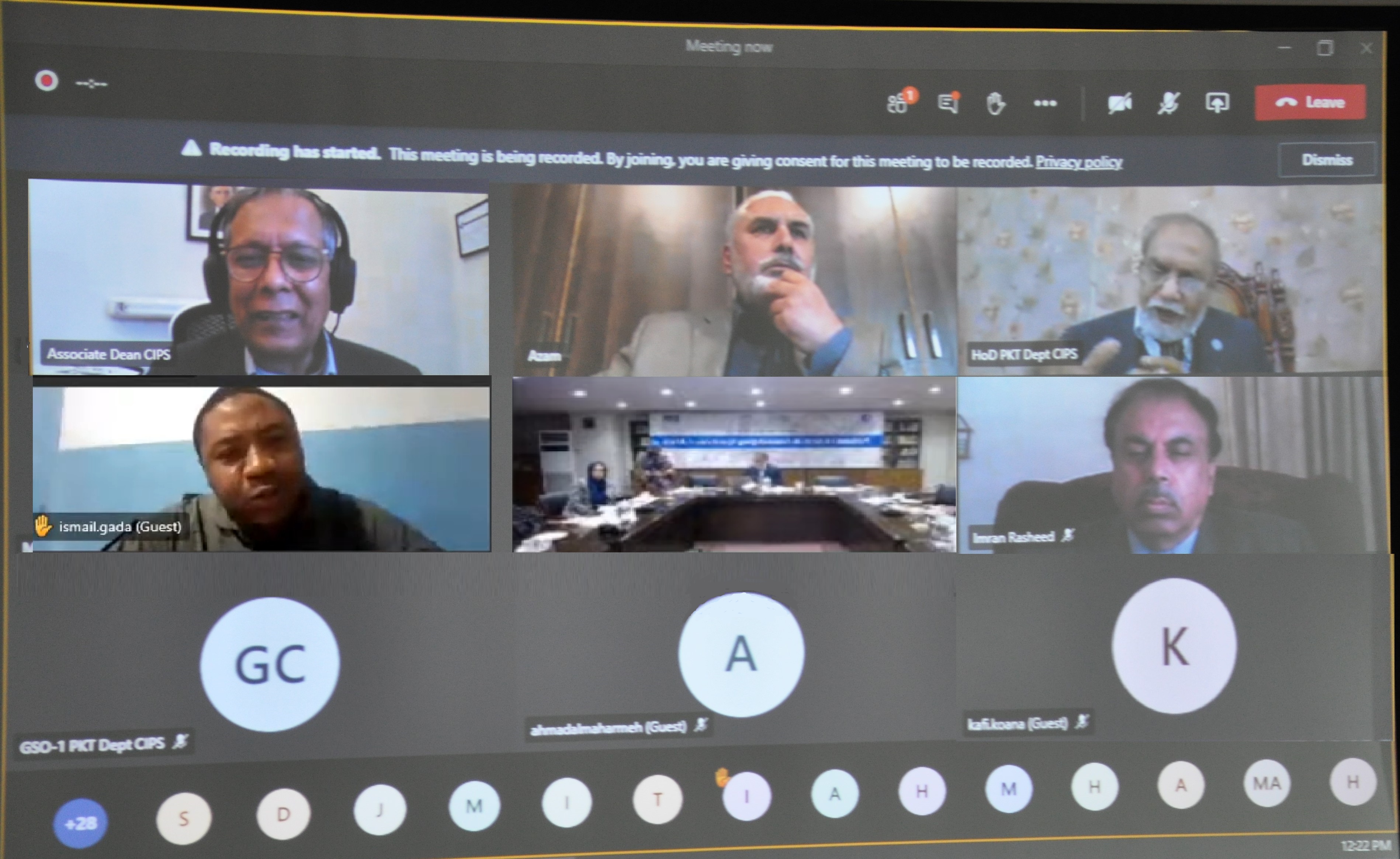
Brig (r) Salim Baig shared his experiences and observations from the Democratic Republic of the Congo where Pakistani troops were not only engaged in peacekeeping efforts, but also identifying gaps and imparting trainings to other potential peacekeepers, whereas its Female Engagement Teams (FET) were delivering lectures to the community’s over English language, computer skills, sanitation hygiene, mental hygiene, gender equality and legal rights of the women.
Rasheed homed on the activities of Pakistani peacekeepers in the Central African Republic sharing there were over 1200 personnel of Pakistani contingent in United Nations Multidimensional Integrated Stabilization Mission in the Central African Republic (MINUSCA), including an Infantry battalion, an aviation unit and two engineering companies. They are tasked with restoring normalcy in the region through, providing aviation support and repair and maintenance of roads etc., he added.
Agha apprised about the contribution of Pakistani troops in ONUCI (The United Nations Operation in Côte d’Ivoire) in Ivory Coast through their contingents of field engineering company, transport battalion, staff officers and MILOBS (Military Observers).
Speaking of the condition of African states in general, the speakers were unanimous that the exploitation of natural resources, such as gold, diamond, cobalt, etc. by outside players and former colonial powers for their vested economic interests, and not any ethnic, religious and political rifts, was a major reason behind the prevailing conflicts and deprivation within the African region. They stressed that the UN ought to show more political will to stop such external interference by putting an embargo on the export of all mineral and natural resources from the conflict zones, as following any such measure, the conflicts may not take very long to end.
Yamin too rued over the apparent lack of will or purpose at the part of the UN in bringing about peace, stating that sometimes it feels that the UN agencies are competing more with each other for recognition than to strive for the real objectives. He also pointed that it was the African and South Asian countries that were among the top ten contributors to UN missions in terms of troops whereas the developed countries were not seen contributing that much to the cause, which could also be seen as an indicator of the lack of intent at their end.
Rahman, in his concluding remarks, said that the accounts shared by the speakers were not only the eye-witnessed case studies but also a representation of today’s global governance context. The endeavor of peacekeeping has many dimensions associated with it e.g. political, social, cultural and economic, but it’s the humanitarian aspect that should always serve as the real motivation behind any such work. He maintained that Pakistan’s participation in peacekeeping endeavors has exposed the country and its armed forces to diverse conflict dynamics, also equipping them with the expertise required at the ground level to deal with such issues and disputes. This gained knowledge, expertise and experience should be used to initiate some kind of political and diplomatic campaign, he added, aimed at addressing bigger issues related to world peace, and in turn playing its role in improving global governance.
The session’s chair also pointed out that Pakistan has contributed more than 200000 troops in more than 50 UN missions in diverse roles so far, and while it has gained good name for its efforts in the concerned regional and international quarters.


